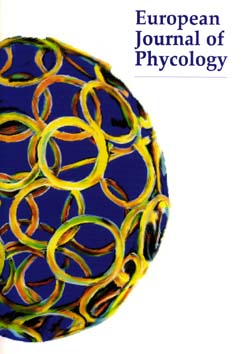No CrossRef data available.
Article contents
Ecophysiological adaptations of two Mediterranean red algae in relation to distribution
Published online by Cambridge University Press: 01 November 1999
Abstract
Effects of irradiance and temperature on the Mediterranean red algae Eupogodon spinellus and Eupogodon planus were tested. Growth of both species was saturated at an irradiance of 10–20 μmol m−2 s−1, which is in accordance with their sublittoral habitat. Eupogodon spinellus and E. planus survived permanently at temperatures between 8 and 30 °C. The temperature optimum for growth was 25 °C with suboptimal growth occurring at (10−)15 and 30 °C in both species. At their collection locality (Corsica), potential monthly growth yields would be highest in summer and in winter would be only about 20% of the maximum. Reproductive requirements could be determined only in E. planus. Gametophytes reproduced both in long and in short days but only at 20 °C. Tetrasporophytes reproduced at 15–20 °C but only in short days. Geographic distribution boundaries are not set by growth or survival limits. However, the reproductive requirements of E. planus did account for its restricted distribution in the Mediterranean and on the Canary Islands.
Keywords
Information
- Type
- Research Article
- Information
- Copyright
- Copyright © Cambridge University Press 1999
- 7
- Cited by

